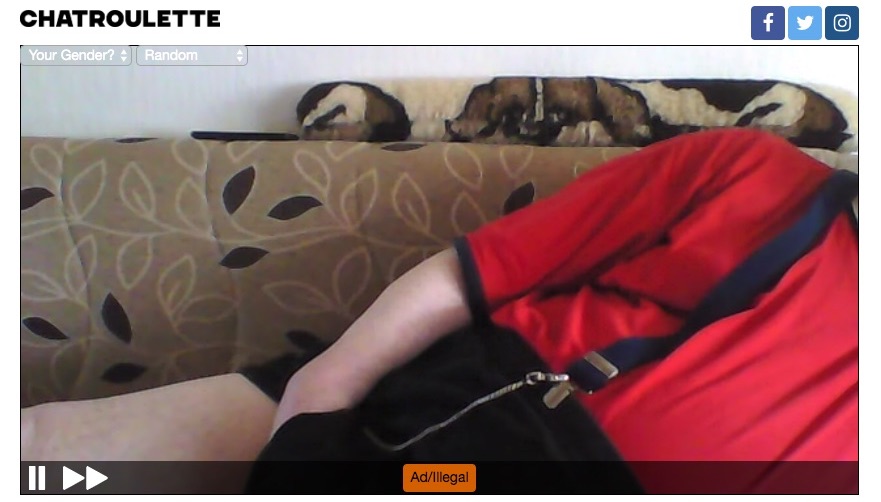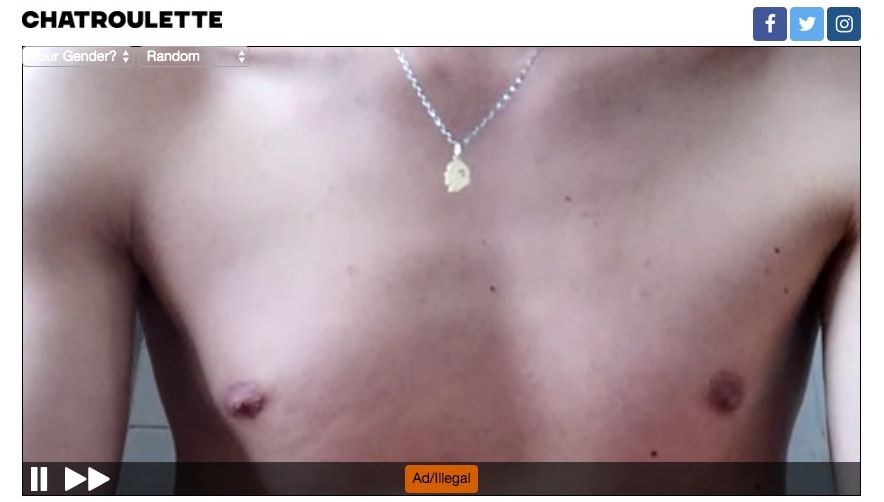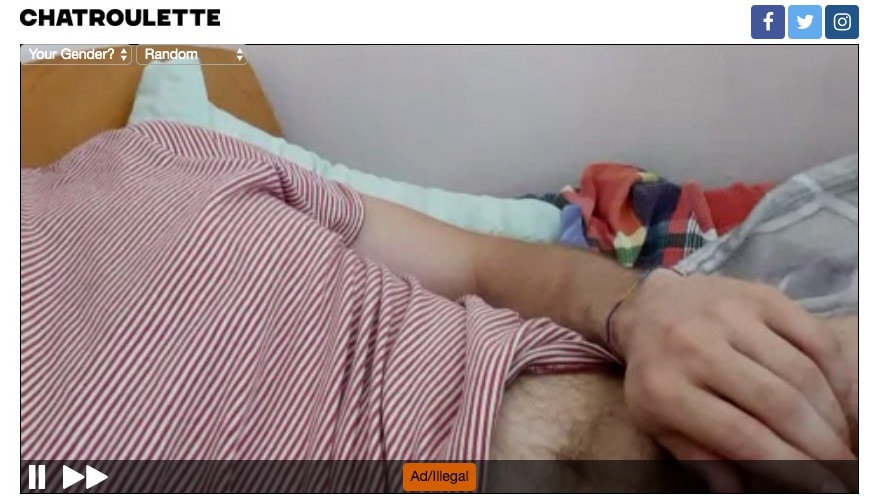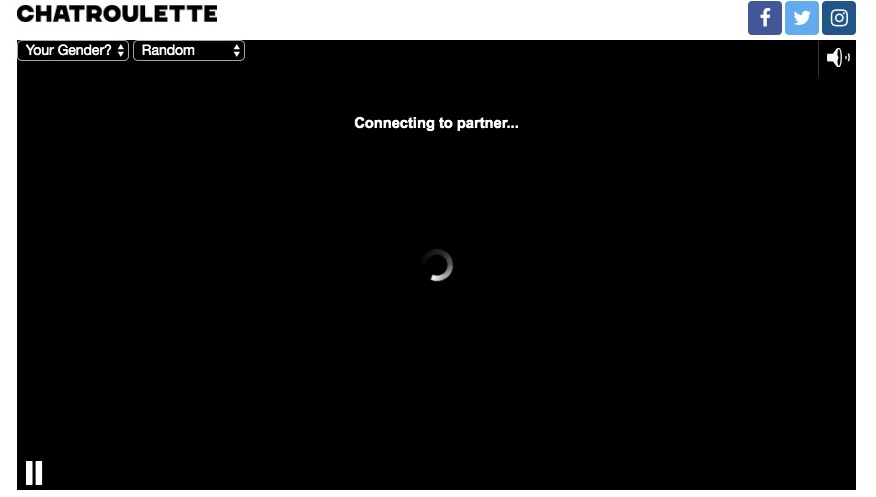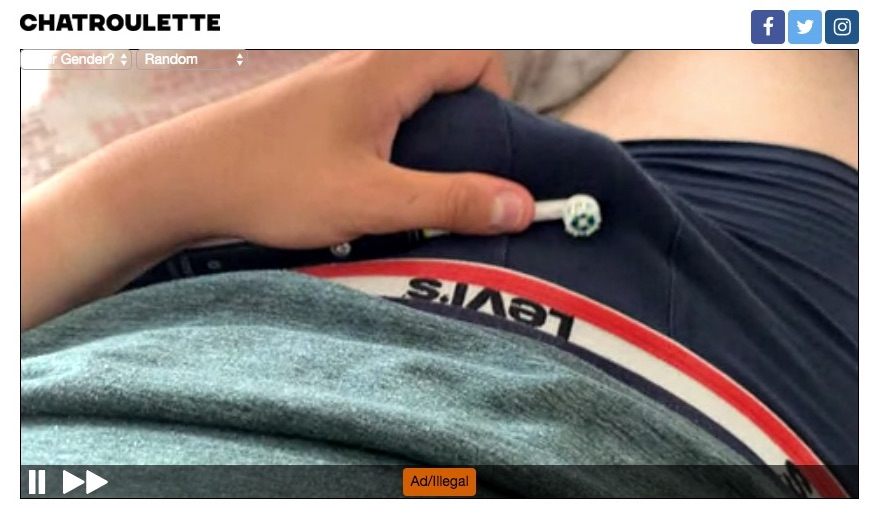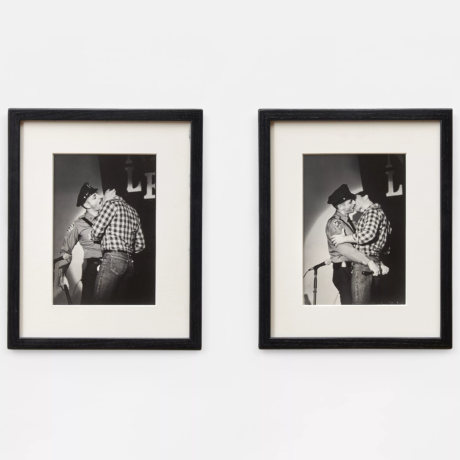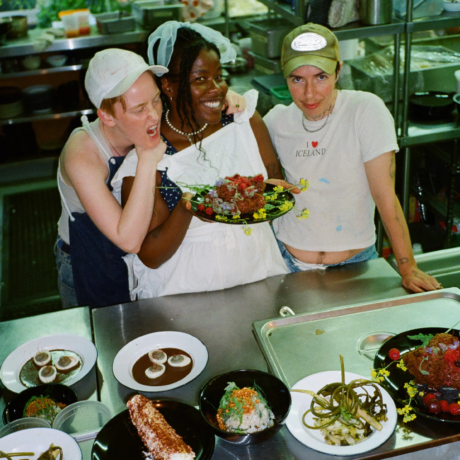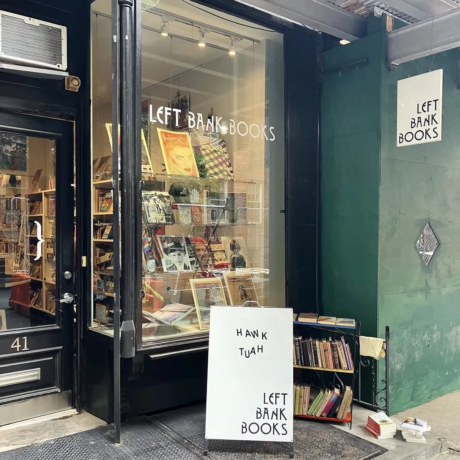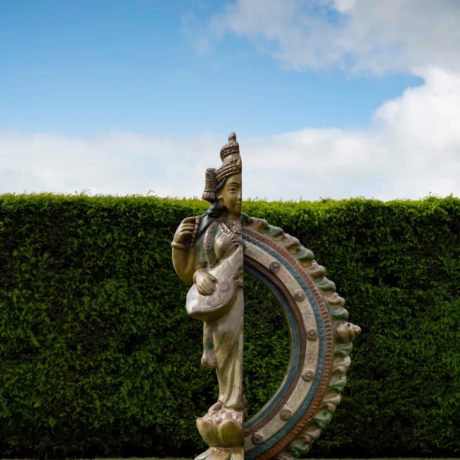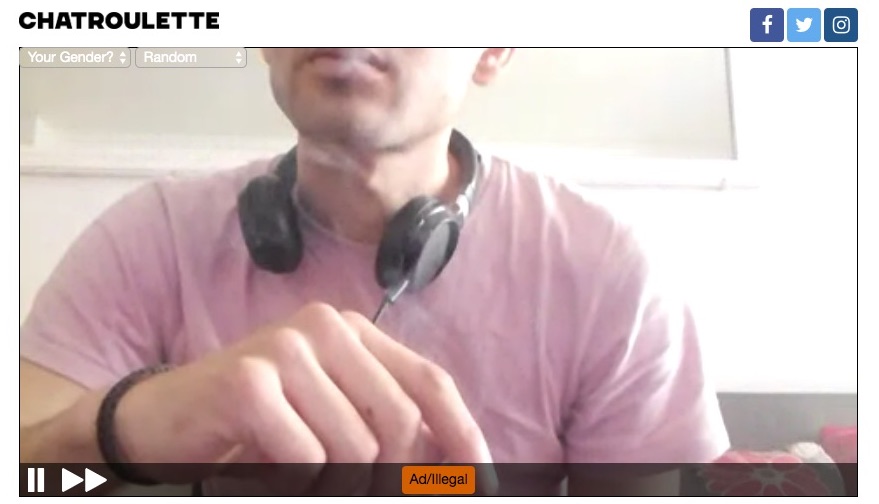
Before the pandemic, no one could have predicted the exponential rise of the online video chat. Between February and April this year, digital conferencing app Zoom’s daily active users jumped from 10 million to over 200 million, driven by the lockdown that much of the world has suddenly found itself living under. Stuck at home, far from friends and family, video calls have become a lifeline for many. While these pixellated conversations may never offer a substitute for a real-life embrace, they go some way towards fulfilling a basic human need for connection.
Chatroulette, launched a decade ago, has seen a similar resurgence in popularity in recent months. Users on the site have more than doubled since the beginning of 2020. Self-professed “original internet-breaking random chatroom to meet guys, girls, celebrities, musicians, comics, and all sorts of fascinating people”, the platform randomly connects users with other strangers in video chat sessions that can be ended by either party at any point.
“The concept was almost stupidly simple, and cut away any opportunity for misinformation or procrastination”
Started by Andrey Ternovskiy as a coding project when he was just seventeen-years-old, Chatroulette made an unexpected splash when it launched in 2010. Greeted breathlessly by the media as “the Holy Grail of all Internet fun” and, somewhat more wryly, as “an ecstatic surrender to the miraculous variety and abundance of humankind”, it offered a playful riposte to the online mire of catfishing, dating sites and staid Facebook chats. The concept was almost stupidly simple, and cut away any opportunity for misinformation or procrastination.
As soon as you landed on Chatroulette’s website, your webcam and microphone would be activated and you were thrown straight into its freewheeling array of chats. Faces could be shuffled as swiftly as a pack of cards. In its first year, Chatroulette boasted 1.5 million users, with around 35,000 online at any one time. Launched during my first year at university, it became wildly popular among the student community as a portal to surprising and downright bizarre chance encounters.
The randomness of these meetings felt egalitarian; who you were and where you came from momentarily didn’t matter. Unlike the curated grid of Instagram, which launched in the same year, there would no record left behind of these conversations. It allowed for silliness and spontaneity, and was as far removed from brand sponsorship and influencers as it is possible to get. There was nothing to be gained from participating beyond the sheer absurdity of, say, watching a man in Argentina strum a guitar in fancy dress.
Sadly, the fun didn’t last. The deliberately democratic ethos of Chatroulette was swiftly subsumed by an onslaught of penises. The origin of the dick pic could be attributed to Chatroulette, as it became a wild-west of anonymous hard-ons displayed with exhibitionist pride. While it officially bans nudity, there are no barriers to entry, and the website quickly became a byword for on-cam masturbation. Numbers dwindled, until a casual user was more likely to encounter an uninvited penis than they were a friendly face.
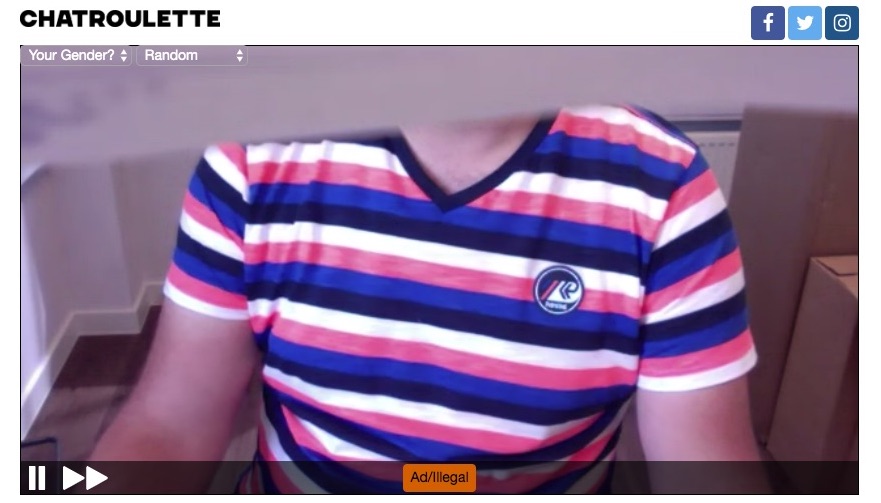
“The deliberately democratic ethos of Chatroulette was swiftly subsumed by an onslaught of penises”
Although the site’s numbers are now seeing a brief resurgence during lockdown, the overwhelming majority of Chatroulette users are still men. On a brief spin of the wheel recently, I found myself confronted with penis after penis, with little respite between them. The website has since introduced a filtered setting, where participants are requested to keep it clean, but the setting again relies on the dubious good faith of its users. Chatroulette could well be viewed as a metaphor for the utopianism of the world wide web itself, which promised infinite connection and the democratisation of our global existence. Instead, we got trolls, unicorns and dick pics.
Fancy owning your own piece of art history? Pick up one of our limited edition prints and treasure it forever, all while supporting great artists.
